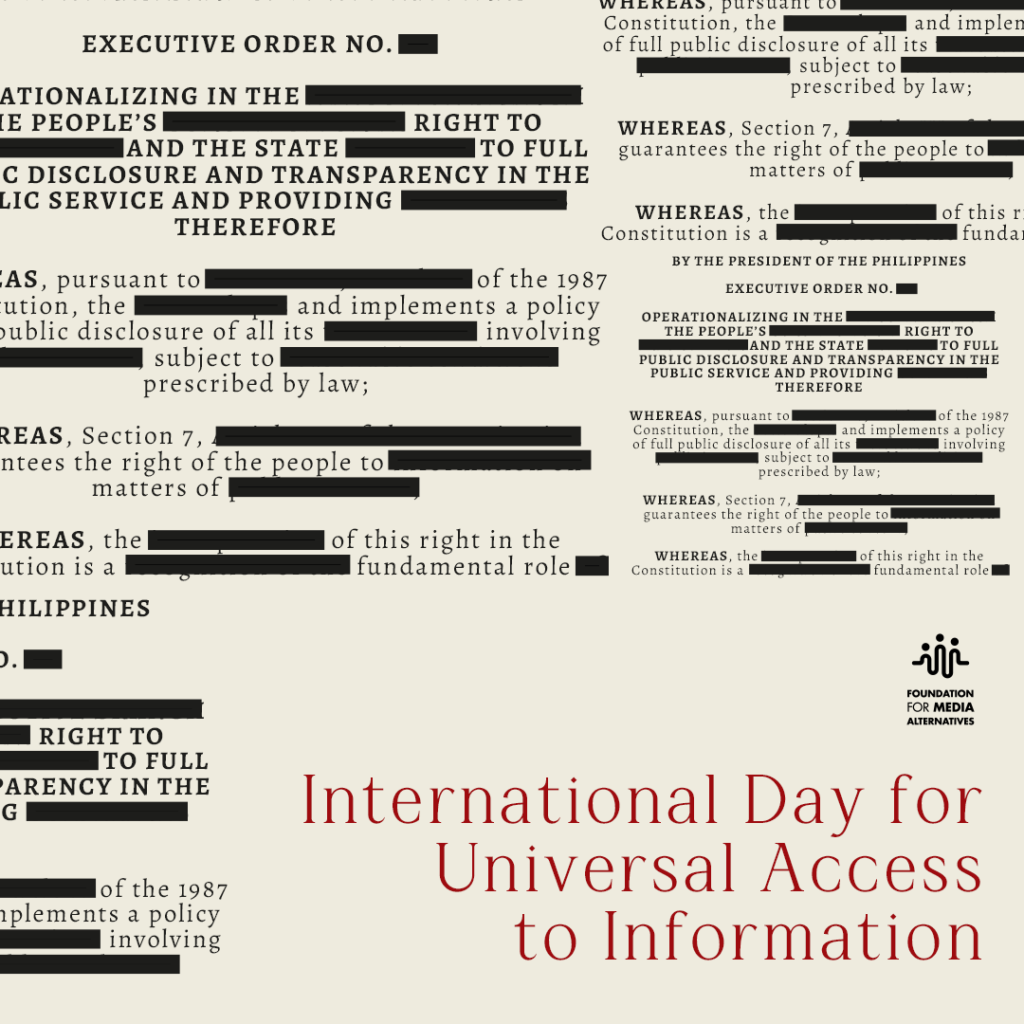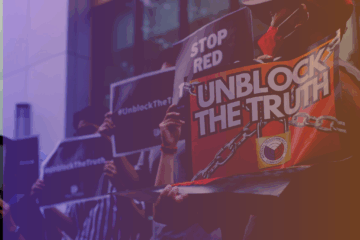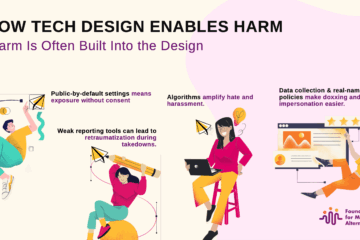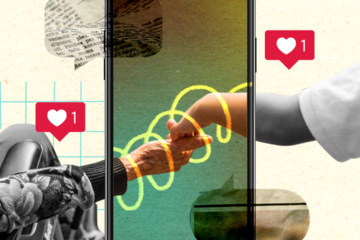FMA’s statement on the International Day for Universal Access to Information | September 28, 2022

Information is the crux of democracy. While it can exist on its own, it could be processed and turned into knowledge, which helps citizens make informed decisions not only in their everyday lives but in their political engagements as well. Open access to government-held information can empower the public to enter dialogues, resist anomalies, ensure transparency, and protect human rights—it enables them to hold the government accountable.
While there is a current Freedom of Information (FOI) policy in place, this only covers the disclosure of official documents and transactions under the executive branch. It was enforced in 2016, when then-president Rodrigo Duterte signed the Executive Order no. 2, which was intended to strengthen every Filipino’s constitutional right to information. Though this specific order has lapses, the implementation of an effective, all-encompassing FOI bill remains to be seen as legislators have yet to be transparent with their documents and records–information that the public are entitled to know.
Under the current Ferdinand Marcos Jr.’s administration, however, the passage of such law would seem to remain in limbo as he made no mention of plans regarding the FOI bill in his first State of the Nation Address. This is a sharp deviation from his predecessors who prioritized access to information early in their terms.
Beyond the FOI bill, there is also more to the issue of information access. As much as the internet made publishing and accessing information easier, it also opened the floodgates for information disorder.
This phenomenon is very much palpable in the Philippines, especially during the latest election season. Disinformation took various forms, from manipulated media and fake news to coordinated troll attacks. But more than misleading the public, massive disinformation led to online and offline harassment of both public figures and private citizens. Even worse, political sleuths and media analysts believe that this flow of falsehoods influenced the outcome of the 2022 national elections. This claim is not hard to believe as many Filipinos have now fallen victim to distorted historical facts.
Turning information into knowledge is a matter of connecting the dots and putting them into context. But the fast stream of information online made scrutinizing pieces of information more difficult. Compounding this problem is the ongoing censorship and vilification of journalists and media outlets, who are sources of verified information.
As access to information remains limited and information manipulation runs rampant, the Foundation for Media Alternatives commemorates the International Day for Universal Access to Information last September 28 and reiterates its position in promoting meaningful access to information and protecting safe digital spaces.
The threat of restricting and distorting information cuts across every Filipino’s right to participate in various democratic processes. But as citizens, we always have the power to fight for a digital space that acknowledges our right to access, share, and utilize truthful information that would assist us in establishing a healthy democracy.



0 Comments